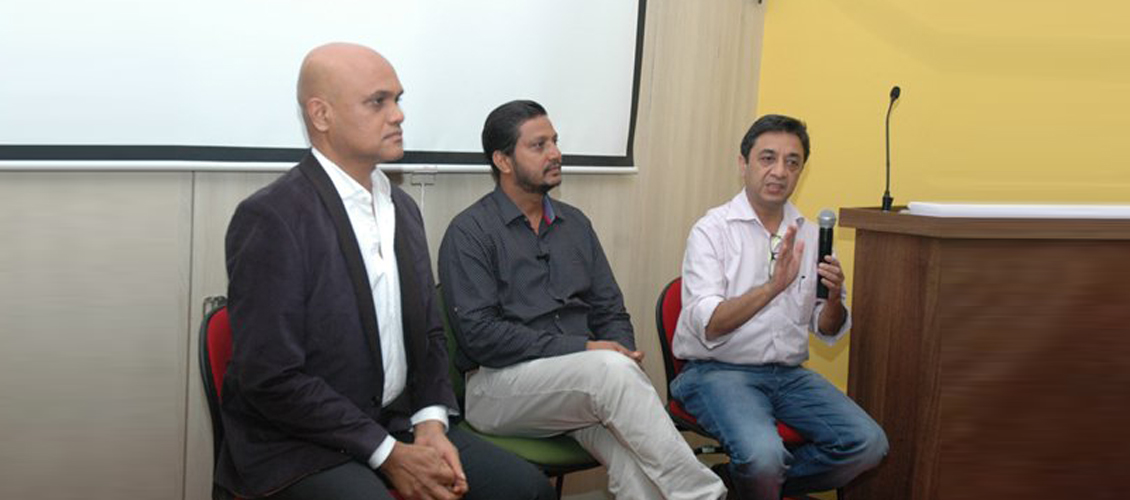
Technology solutions and apps can transform citizens’ access to civic services and governance as shown by Nashik Municipal Corp. Mumbai and other cities too can use similar app-based platforms to transform governance and ease lives of citizens, say experts at a panel discussion organised by Moneylife Foundation. These experts have developed private apps to offer solutions to everyday issues and to help build communities.
The experts include Umesh Jain, Founder of AasPaas, Chetam Temkar, Founder of SmartShehar and Prof Avkash Jadhav, nominated municipal councillor at the BrihanMumbai Municipal Corp (BMC). Prof Jadhav also explained initiatives of the municipal corporation and provided some perspectives on why citizens need to participate more actively in civic governance in order to make it effective.
Mr Jain, a technology expert, said AasPaas is an app-based neighbourhood engagement platform that connects all stakeholders such as citizens, administration officials, civic bodies, elected representatives and non-governmental organisation (NGOs). “Our objective is to help build stronger communities and enable quicker resolution of civic issues, better governance and effective delivery by NGOs too. It is like a Mohalla on Social Media,” he added.
While the app is ready, AasPaas plans to start a pilot project for community engagement at Bandra, very shortly. His idea is that the app would not only allow citizens to engage with municipal authorities, but will also be the go-to destination to discover entertainment, sports events, social gatherings and fun community events in the neighbourhood.
Mr Temkar, who, after working with several Fortune 500 companies has returned to India from the US, provided his broader views on concept of SmartShehar. He says, “We can re-imagine ‘Smart Cities’ through a series of mobile phone apps that will allow you to ease commuting, crowd source information, report complaints, connect with other like-minded citizens, log events and so on. This has transformational implications across urban planning, agriculture, education and transport planning.”
For example, Mr Temkar says when someone opens the SmartShehar mobile app in Mumbai, he will get basic information like location, nearest railway station, city bus stops as well as fares to reach the station. In addition, he said, on the app, one can raise specific issues that are then forwarded to the authorities for redressal. “We would really love to have the authorities responding to such queries, grievances online. But as we know, most government offices still prefer the document submission, we have given this option as well for the users. User can take a print out and submit it to the authorities. If the issues are resolved, then the user can close it. There are several NGOs that are willing to take issues that remain unresolved after certain time,” he added.
SmartShehar already has successful apps to know about BEST and railway routes, which have received wide coverage.
Mr Jain also highlighted the role played by NGOs in such app based platforms to improve governance. Replying to a question asked by Prakash Joshi, one of the attendees, Mr Jain said AasPaas apps helps connect citizens who wants to volunteer and the NGOs who are looking out for such help locally.
The session was attended by several activists and concerned citizens leading to an interesting discussion. A key question was how to get people more engaged. Prof Jadhav correctly pointed out that apps should not give citizens the impression that they can merely complain at the press of a button on their smart phones, there is a crying need for people to participate in the democratic process. Echoing this view, Mr Temkar said, while there were endless complaints about lack of amenities or proper services, most citizens have not made the effort to file a single complaint.
Another activist asked whether smart corporators and aspiring corporators could use the apps effectively to engage with their wards and constituencies. Replying to this, Prof Jadhav said, he had shared the app-based platform initiatives with some of the corporators from across the party line, and received good response. “They (the corporators) are very much interested in such developments, but due to time constraints and pre-engagements, may not be present for today’s session,” he asserted.
According to Mr Temkar, even a local member of Legislative Assembly (MLA) has shown keen interest in SmartSheher and they are taking it forward.
When asked for funding module used by app-based platforms, as most government bodies shy away from supporting such initiatives, both the experts and developers feel that the government should support them. Especially, Mr Temkar explained how similar app-based platform is funded by the US government. However, in India, since there is lack is similar support, we need to raise the funds by local advertising and may be by sharing the data, he said.
Mr Jain says AasPass will do the local advertising as well as may take some part money or fees from NGOs seeking volunteer or may be from the reward received by people for raising queries on the platform. But it will take some time, he added.

